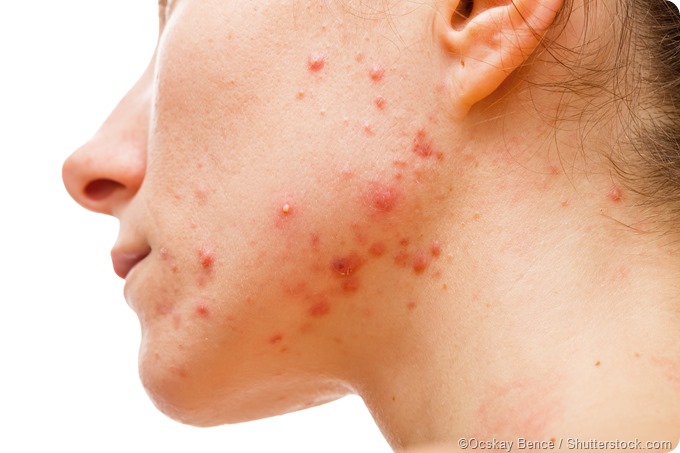The microbiome is the collective term used to refer to all of the microbes found in or on the human body and more specifically, the genomes of those microbes.
Gut Responses: Microbes, Inflammation, and Cancer
The microorganisms that colonize the human body have traditionally been thought of by doctors as requiring elimination. Viruses have been associated with colds and flu and bacteria with infections such as strep throat.
However, most microbes do not cause ill health and the more researchers learn about them, the more is understood about how important the balance of different microbial populations is within the context of health and disease. Imbalance of the microbial populations can lead to health problems and correcting that imbalance may resolve such problems.
This improved understanding may lead to the development of more effective treatment approaches.Some of the conditions that are known to involve the microbiome are described in more detail below.
Acne
Acne generally develops as a result of the bacteria Propionibacterium acnes (which is also a part of the normal skin flora), invading hair follicles. The underlying cause of acne appears to be an imbalance between the number of bacteria that cause acne and the presence of microbes that protect against harmful bacteria. In the future, treatment approaches may be focused on increasing the number of beneficial microbes that protect follicles against infection.

Diarrhea associated with antibiotic use
The elimination of beneficial bacteria along with pathogenic bacteria can mean a loss of protection against the harmful bacteria that cause diarrhea. Some individuals now consume probiotic foods such as yoghurt to treat antibiotic-associated diarrhea, but the bacteria found in these food items only account for a tiny proportion of all the different species of microbes in the gut.
Although the health benefits of probiotics have been promoted, these food items have not been well studied. One treatment that has been shown to be effective at restoring severe microbial imbalances is fecal transplant – the transferral of feces form a healthy individual to the patient’s gut. This procedure can lead to a complete recovery within just days.
Allergies
Allergies arise when the immune system overreacts to the presence of a substance that would not otherwise cause any harm. Research suggests that when children are exposed to microbes, the immune system “learns” to differentiate between harmless microbes and pathogenic ones. Some scientists believe that very clean living environments where hand wash, anti-microbial cleaning products and air filters are used, may eliminate this learning by the immune system.
Autoimmune disease
Autoimmune diseases are conditions that arise because the immune system launches an attack against its own cells and therefore non-foreign bodily tissues. In the case of multiple sclerosis, the myelin sheath that surrounds and protects nerves is attacked and in rheumatoid arthritis, connective tissue in the joints is targeted.
As is the case with allergy, this is likely to arise when the immune system does not learn to differentiate between damaging substances and harmless ones. Some types of gut microbes may protect against autoimmune diseases, while others appear to increase susceptibility to the conditions. In murine models of type 1 diabetes, where cells in the pancreas are attacked, certain microbes have been shown to protect against the disease.
Cancer
Research suggests that some microbes play an indirect role in the development of cancer by triggering inflammation, for example. Other evidence shows that certain viruses directly cause cancer. The human papilloma virus (HPV) is associated with a range of cervical cancers and hepatitis B and C significantly increase the likelihood of liver cancer.
Diabetes
Insulin is the hormone that instructs cells in our body to take up glucose from the blood and in type 2 diabetes, the body is less responsive to this instruction than it should be. This “insulin resistance” leads to a high blood glucose level which can eventually damage blood vessels, nerves, the kidneys, and the eyes.
Some researchers theorize that the increase in diabetes prevalence may be connected to an increase in the amount of sugar and fat in the diet increasing, compared to a few decades ago, since these dietary changes could alter which types of microbes can survive in the gut. Researchers have shown that when obese men with insulin resistance were given microbes from men who were thin and healthy, the obese men became more responsive to insulin, which resulted in healthier blood glucose levels.
Sources:
- http://learn.genetics.utah.edu/content/microbiome/disease/
- https://depts.washington.edu/ceeh/downloads/FF_Microbiome.pdf
- https://www.hmpdacc.org/hmp/
Further Reading
Last Updated: Jul 19, 2023